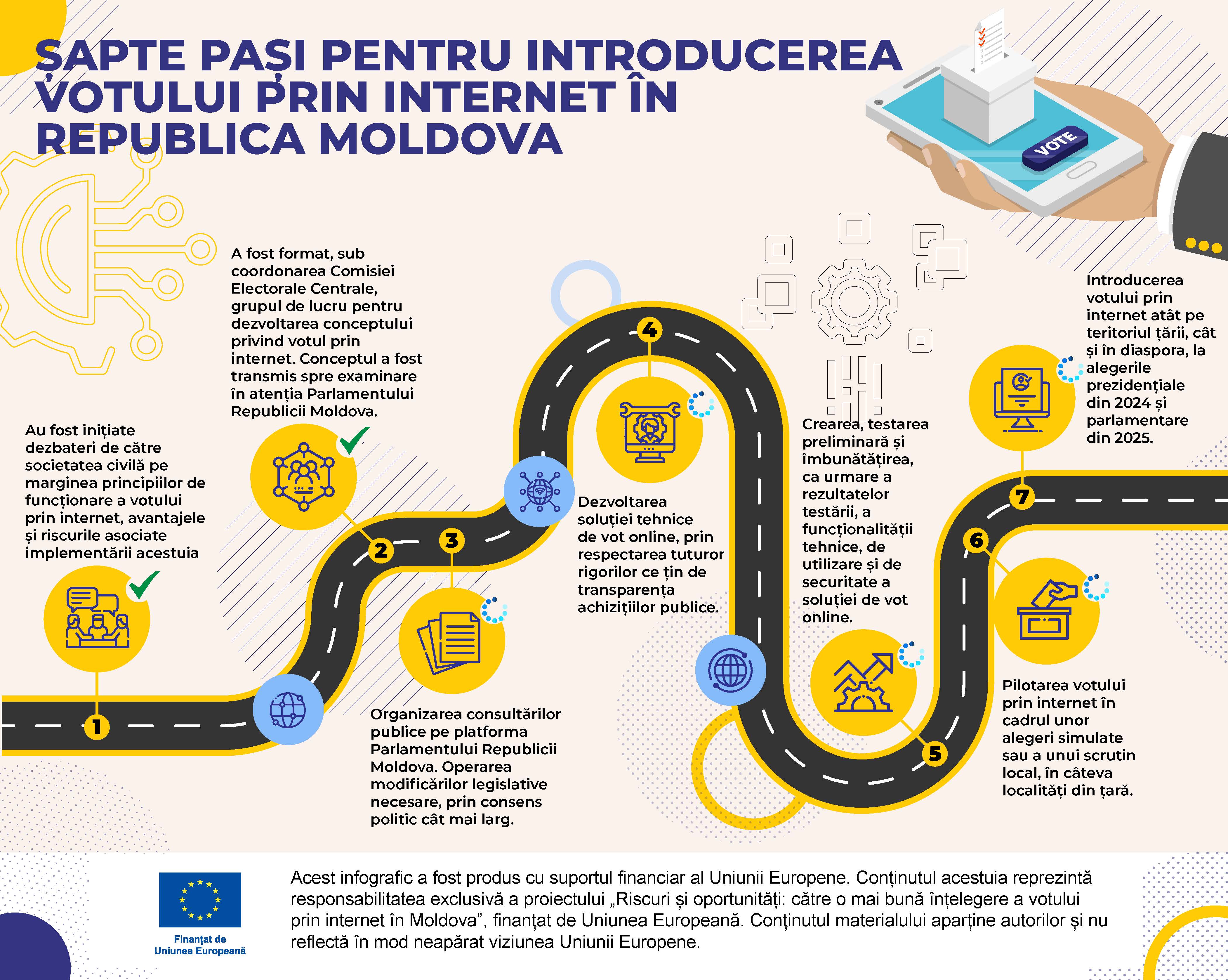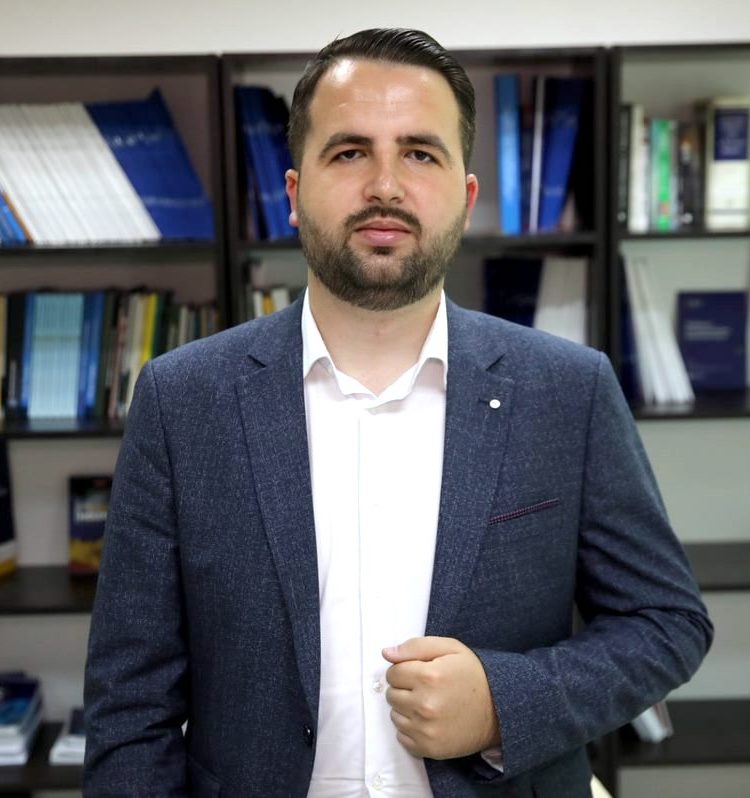Nevertheless, an encouraging number of 260,000 citizens from the diaspora voted in summer 2021 for the parliamentary elections, twice more than in 2016. The high turnout surprised everyone, including experienced electoral observers. This showed there is a huge participation potential in the diaspora that was not really understood and tapped into until recently. The elected Parliament promised they would do everything they can to improve the voting conditions for the diaspora – for which alternative voting methods are crucial. With the experience of the last elections in mind, Mihai believes now is a good moment to advocate for internet voting in the country. If the window of opportunity is missed and internet voting is not introduced within the next months, in 2024 and 2025 there will be no alternative methods for voting and the diaspora will again have to queue and travel hundreds of km just to vote.
In the summer of 2022, Mihai participated in a public consultation of the Parliament in which amendments to the electoral code proposed by Central Commission were being discussed. But alternative voting methods were missing. Mihai was quite disappointed to see these changes hadn’t been proposed, having participated in the Working Group of the Electoral Commission which developed the concept on internet voting in Moldova and which covered all the aspects of internet voting.
Nevertheless, his EaP Civil Society Fellowship project brought very concrete results. Among his recent achievements, Mihai counts the fact that, through his fellowship project, he was able to increase awareness and interest in the mass media, civil society, and the political class regarding internet voting. With the many threats of 2022 (the war in Ukraine, the cost-of-living crisis, the energy crisis) there was no interest to even discuss this publicly. In order to make the topic more prominent in public discourse, Mihai and his mentor, Victor Guzun – former Ambassador of the Republic of Moldova to Estonia, approached TV and radio channels to cover the topic during five talk shows. They also approached different journalists who in turn approached different ministers and MPs to ask about any plans for internet voting.
During his fellowship, Mihai also worked closely with the Coalition for Free and Fair Elections (bringing together 35 NGOs) as it was important to gain their support for internet voting as an alternative method. Within his fellowship project, he developed the only materials dedicated to internet voting in Moldova and managed to keep this issue on the agenda. The Central Electoral Commission is now working on piloting and testing internet voting which hopefully will lead to something more concrete soon. The legitimacy of the next Parliament in the diaspora depends on the successful organisation of the next elections. After having obtained the EU candidate status, Moldova needs to fulfil several conditions, one of them being the amendment of the electoral code and the reform of the electoral and legislative system.
Mihai perfectly understands that internet voting will not become a reality tomorrow, but the process is advancing. With a system that will hopefully soon be tested, piloted, and confirmed as a working alternative, the political actors opposing the change will have few arguments left.
As for the near future, Mihai plans to continue working on internet voting and the electoral process considering there will be local, presidential, and parliamentary elections in 2024 and 2025. He plans to be involved in the monitoring process and raising awareness, as well as promoting digital services in the country. Together with his mentor, he is planning to promote digital services at the regional level, making people aware of how important it is to have electronic signatures and hoping to increase the number of users of existing governmental platforms for digital services and digital transformation in Moldova. With more people using digital services and having e-signatures (around 3% of citizens have an e-signature), voting easily from any location in the world could become a reality.



